SUMMARY
This is AI generated summarization, which may have errors. For context, always refer to the full article.
![[OPINION] Of education and the first EDSA Revolution](https://www.rappler.com/tachyon/2021/02/imho-of-educ-edsa-anniv.jpg)
At 35 years, People Power 1986 or EDSA 1 has become a specter haunting the Filipino People. This revolution, lauded and emulated across the world, is also a cautionary tale for those who desire revolution without a revolution.
When I was young, we were told to study well and finish school to have a good life. Growing up poor, that made sense. After all, our neighbor was a graduate – she had a big house, a nice car, her kids had PlayStation and their own Nokia 3310s.
But if education is such a powerful human tool to bring out the best in us, why didn’t learning and knowledge, as Elie Wiesel asked, inoculate people against apathy, selfishness, and hate? Why didn’t education prevent the present destruction of the earth? If the goal of education is to uplift bodies and transform societies mired in poverty and injustice, then why are so many of us still poor and victimized?
“… to be educated means you cannot do certain things. How come that is not correct?” This question from Wiesel encapsulates my own: how come so many educated people are at the forefront of exploitation, corruption, and oppression, while other educated people are their slaves and lackeys? Degree holders and educated people enforced the horrors of martial law. They were not forced; they made their own decisions as to who, when, and how to incriminate, abduct, jail, torture, and murder. And the memory of EDSA, human rights, and democracy is being disparaged by the same kind of people today.
In reality, when people speak of studying well to become like conventionally successful people, what they mean is copying their ways and attitudes to acquire power and property.
The acquisition of affluence remains the most potent, unofficial driving force behind education. Baptized by pragmatism and moral relativity, affluence-oriented education traps people in a mindset of surviving and getting rich, leaving little room for critical self-reflection and critical citizenship.
Like everything else, education is political; to direct the eyes, mind, and heart of people to what must be learned and practiced is an exercise in power. And of this political exercise we must ask: who does it serve?
As a former volunteer of Ugnayan ng Pahinungod Manila, I’ve conversed with many Araling Panlipunan teachers in several provinces. I discovered that while most succeed in transmitting technical information, they are wanting in humanist transmission.
In these peripheries, the localities left behind or shielded from the tumult of martial law and People Power, lived realities were different. Most of them have remained poor after the revolution, disassociated from progress and development, left to the caprice of local power elites. From these arose real narratives that contend with the national narrative of the center, which was sympathetic to Marcos-driven historical distortions and had eventually given in to the populist rise of Duterte.
So, the “historical amnesia” accusation is faulty, for how can one forget what one has neither experienced nor known?
It is not enough to know facts; we must make them personal. But without active conversation or confrontation, distortions, misconceptions, and serious errors take root and bloom through opportunists and fanatics, now with the aid of the internet and digital platforms.
The new republic was lax in political and social reckoning. The economy prospered mainly at the hands of the few. So despite having a human rights and social justice-centered Constitution, and martial law education integrated into the new curriculum, our tragedy today still cannot be averted. There remain students and even teachers who are martial law apologists and one-man rule fanatics, the Marcos siblings still got into the Senate, militaristic governance continues to ascend, and our economy and sovereignty are still for sale to foreign powers.
But if a disregard for history is behind the rise of the Marcoses and another authoritarian leader in the Philippines, then surely a conscious moral disregard goes with it.
History’s lessons, though not moralizing, speak of the ethical relations among people, and these relations’ consequences, for better or worse. Every learning should make us more human, not less. But our affluence-oriented education and elite-governed democracy are incompatible with this task.
Here lies the wonder (and tragedy) of history: through facts and memory, we are invited to know, understand, and empathize with total strangers and affirm that, above all, we are all connected, that we are not alone.
History as memory humanizes; memory as history desensitizes. To hear the stories of the victims and survivors is to become a witness. It is our right and duty as young people to hold the past in a critical light. Memory is an enemy of tyranny. Therefore, to remember is to resist. And as a witness, one must speak and act. – Rappler.com
Domar Balmes is a member of Dakila: Philippine Collective for Modern Heroism and #WeTheFuturePH, a non-partisan national movement of Filipino youth standing up for rights, freedom, and democracy.
Add a comment
How does this make you feel?

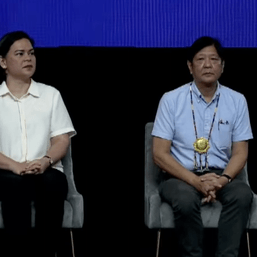
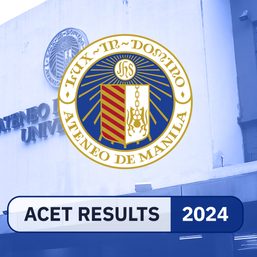
![[Time Trowel] Mentorship matters](https://www.rappler.com/tachyon/2024/04/mentorship-matters.jpg?resize=257%2C257&crop_strategy=attention)
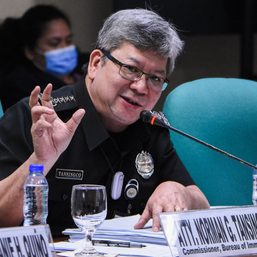

![[Just Saying] Marcos: A flat response, a missed opportunity](https://www.rappler.com/tachyon/2024/04/tl-marcos-flat-response-april-16-2024.jpg?resize=257%2C257&crop=277px%2C0px%2C720px%2C720px)
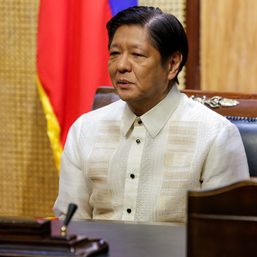

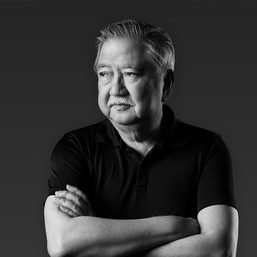
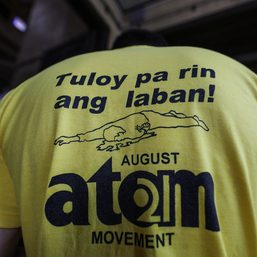
There are no comments yet. Add your comment to start the conversation.